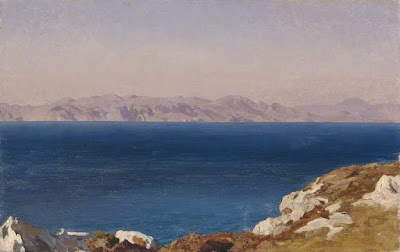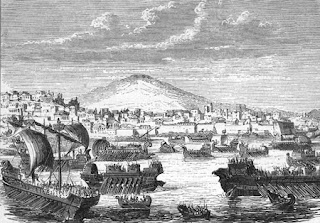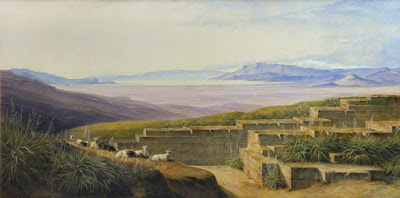“Socrates: I walked down to the Piraeus yesterday with Glaucon the son of Ariston to make my prayers to the goddess.”
Well, I’ve finished History of the Peloponnesian War (except for my final post), yet I’m afraid I’m going to continue on the same track with The Republic and put a number of my readers to sleep. But I am enjoying this history project ….. as we’ve meandered through Herodotus, then Thucydides, and now Plato, you do see changes and developments within the Greek culture and worldview that can’t be ignored. And since our civilization, to a certain extent, grew out of it, I believe it’s valuable to learn something about that development. I anticipate that Plato will be more interesting, but possibly more frustrating. It doesn’t seem like it was only the ancients who wanted to strangle Socrates …..






